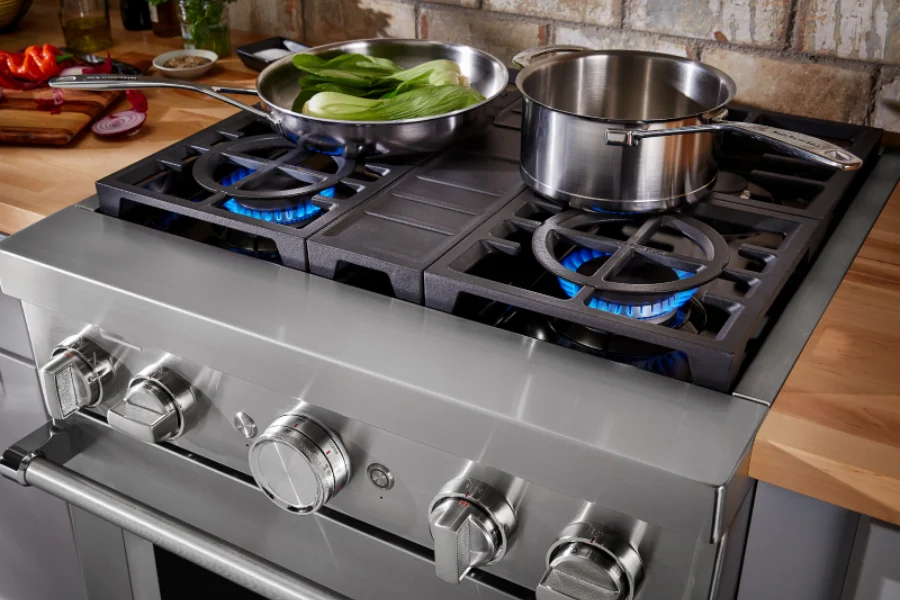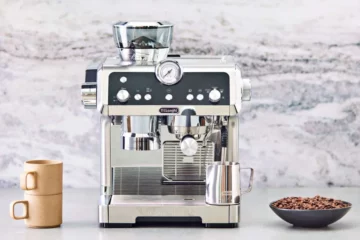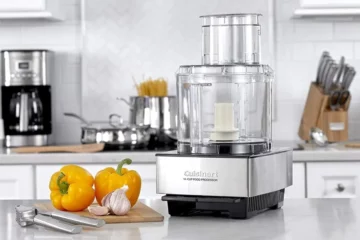The Ultimate Guide to Choosing the Perfect Kitchen Stove for Your Home

Kitchen Stove | Goskat
Your kitchen stove serves as the centerpiece of your home. It is where you whip up a delectable meal for your family, try out new recipes, and create lasting memories with your loved ones. However, with so many different types, sizes, and styles of kitchen stoves available in the market, choosing the best one for your home can be an overwhelming task. But worry no more! In this ultimate guide, we’ll help you make an informed decision by exploring the different types of kitchen stoves, their features, and their pros and cons to help you find the perfect stove that fits your cooking needs, budget, and lifestyle.
Types of Kitchen Stoves
Before we dive into the different types of kitchen stoves, let’s first discuss the most common types available in the market today. They are gas, electric, dual-fuel, and induction stoves.
Gas Stoves
Gas stoves are the most popular type of stove, and they work by using natural gas or propane. They offer instant heat and precise temperature control, making them ideal for cooking a wide range of dishes. With a gas stove, you can visually see the flame, which allows you to control the heat more accurately. Additionally, gas stoves also provide a cost-effective cooking solution since they run on natural gas or propane, which is relatively cheap.
However, gas stoves require a gas line, which can be a costly installation if you don’t already have one. They can also be challenging to clean since food particles can easily get trapped in the grates, and the open flame can be a safety hazard.
Electric Stoves
Electric stoves, on the other hand, use electricity to generate heat. They come in two types: coil and smooth-top. Coil stoves have heating elements that resemble coils, while smooth-top stoves have a flat and smooth surface with heating elements located underneath.
Electric stoves are relatively easy to clean since they have a smooth surface, and food particles cannot get trapped in the grates. They are also safer to use since they do not have an open flame. Additionally, electric stoves are less expensive than gas stoves, and they do not require a gas line installation.
However, electric stoves are slower to heat up and cool down, which can be frustrating when cooking. They also tend to have uneven heat distribution, making them less ideal for cooking delicate dishes.
Dual-Fuel Stoves
Dual-fuel stoves are a combination of a gas stove and an electric oven. They provide the best of both worlds – the precise temperature control of a gas stove and the even heat distribution of an electric oven. Dual-fuel stoves are ideal for those who cook a lot of baked goods and want the convenience of an electric oven.
However, dual-fuel stoves can be expensive, and they require a gas line installation. Additionally, they can be challenging to clean since they have both gas and electric components.
Induction Stoves
Induction stoves use magnetic fields to generate heat. They are the most energy-efficient type of stove since they only heat the cookware, not the air around it. Induction stoves also provide precise temperature control, making them ideal for cooking a wide range of dishes.
However, induction stoves require cookware made of ferrous metal, such as cast iron or stainless steel. They can also be expensive, and they require a specific type of cookware, which can be an added expense.
Choosing the Right Size and Style of Stove
When choosing the right size and style of stove, there are several factors to consider, such as the size of your kitchen, your cooking needs, and your lifestyle.
Size
The size of your stove should be proportional to the size of your kitchen. If you have a small kitchen, a compact stove would be ideal. However, if you have a large kitchen, a larger stove with more burners would be a better fit.
Style
The style of your stove should also be considered. Do you prefer a freestanding stove or a slide-in stove? Freestanding stoves are easy to install and can fit into any kitchen design. Slide-in stoves, on the other hand, are designed to fit into existing cabinetry, giving them a sleek and seamless look.
Additional Features to Look for in a Kitchen Stove
Aside from the type, size, and style of stove, there are additional features to consider when choosing the perfect stove for your home.
Self-cleaning
Self-cleaning stoves are equipped with a feature that makes cleaning your oven a breeze. It saves you time and energy since you don’t have to spend hours scrubbing your oven.
Convection
Convection stoves have a fan that circulates the hot air in the oven, providing even heat distribution. This feature is ideal for cooking delicate dishes like soufflés and baked goods.
Warming Drawers
Warming drawers are an excellent feature for those who enjoy hosting dinner parties. They keep your food warm and ready to serve while you finish cooking the rest of the meal.
Maintenance and Care for Your Kitchen Stove
Proper maintenance and care for your kitchen stove are essential in ensuring its longevity and efficiency. Here are some tips to keep your stove in top condition:
- Clean your stove regularly to prevent food particles from getting trapped in the grates and burners.
- Use the right cookware for your stove to prevent damage and ensure even heat distribution.
- Follow the manufacturer’s instructions when cleaning and maintaining your stove.
Conclusion
Choosing the perfect kitchen stove for your home can be a daunting task, but with this ultimate guide, you now have the knowledge and tools to make an informed decision. Remember to consider the type, size, and style of stove that fits your cooking needs, budget, and lifestyle. Additionally, consider the additional features, maintenance, and care of your stove to ensure its longevity and efficiency. With the right stove, you can create culinary masterpieces, experiment with new recipes, and create lasting memories with your loved ones.















